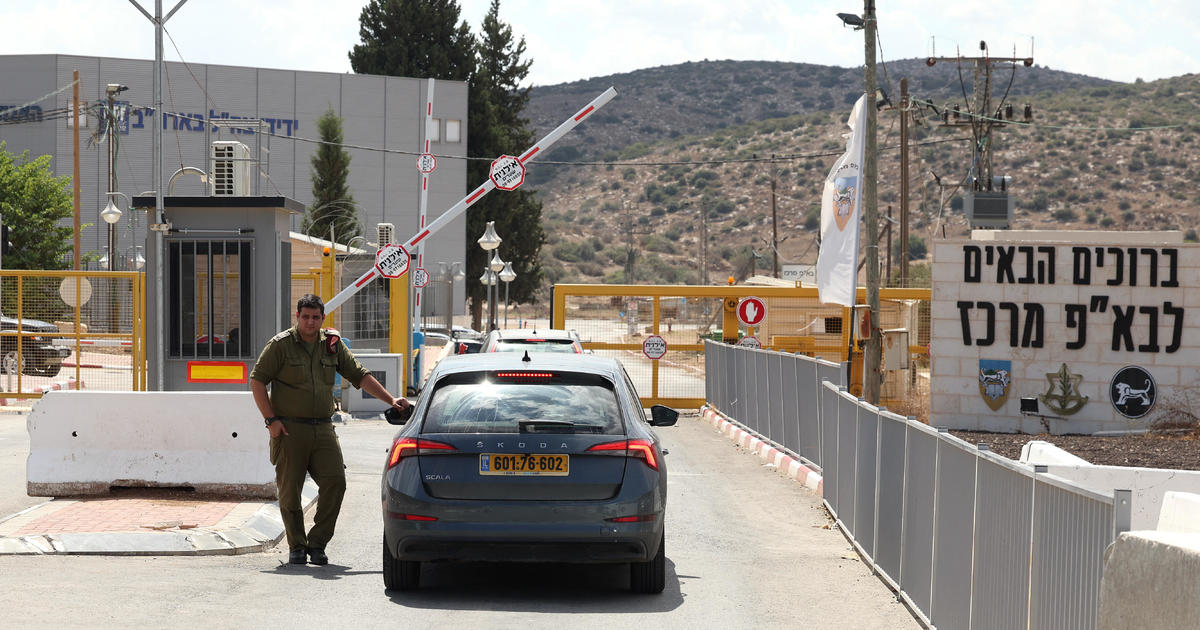Israel recently announced the arrest of seven Israeli citizens accused of spying for Iranian intelligence. This extensive operation, carried out by the Israeli police and internal security agency, uncovered a network actively gathering sensitive information on Israel’s military and energy infrastructure over a period of two years. The arrests highlight the ongoing and sophisticated threat posed by Iranian intelligence operations, underscoring Israel’s continuous vigilance against potential enemies and the complex challenges of internal security in a volatile geopolitical environment. The sheer scale of the operation, including the substantial amount of collected intelligence and the financial rewards involved, underscores the seriousness of this security breach and the potentially devastating consequences if this information had fallen into the wrong hands. This event comes amid heightened tensions in the region following Hamas’ October 7th attack on Israel and the ensuing conflict.
The Israeli Spy Ring: Details of the Arrest and Investigation
The Network’s Activities and Targets
The seven Israeli citizens, hailing from Haifa and other northern regions, were allegedly directed by two Iranian agents known only as “Alkhan” and “Orkhan.” Their activities spanned two years, during which they systematically gathered sensitive intelligence on crucial Israeli assets. The scope of their intelligence gathering included detailed reconnaissance missions targeting IDF bases, particularly those of the air force and navy. Critical infrastructure such as the Hadera power plant and locations of the Iron Dome defense system were also targeted. The meticulous nature of their operations suggests advanced planning and an understanding of Israel’s security vulnerabilities. The investigation uncovered extensive documentation—photographs and videos of IDF bases, ports, and key infrastructure—illustrating the depth of their espionage. The amount of detailed material suggests a significant potential security breach. The individuals also collected information on various Israeli citizens at the behest of their Iranian handlers.
Payment and Methodology
The Israeli spy network received substantial payments, often through cryptocurrency, for their intelligence gathering. The large sums involved (hundreds of thousands of dollars) highlight the substantial resources dedicated by Iran to this operation. This highlights Iran’s willingness to invest heavily in espionage activities to compromise Israel’s security capabilities. The use of cryptocurrency illustrates the methods Iranian intelligence uses to conceal financial transactions and operate in the shadows. The ability to use this method demonstrates both financial means and significant technical capability. The operation serves as a testament to the increasingly sophisticated means by which espionage networks function in the 21st century, making detection and prevention more challenging.
Wider Geopolitical Context and Implications
Increased Tensions and Regional Instability
The arrests come amid heightened tensions in the Middle East. The ongoing conflict following Hamas’ October 7th attack, which killed hundreds of Israelis and led to widespread hostilities with Iran-backed groups like Hezbollah, created a volatile security environment. This volatile situation puts Israel on a constant alert and highlights the potential for escalating tensions. The arrests showcase the broader context of Israeli-Iranian relations. The arrest was likely driven by ongoing anxieties surrounding the conflict and suggests that Iran’s espionage network may be targeting critical infrastructure and strategic assets as part of a wider campaign. This espionage network activity shows increased concern for threats to Israeli stability during this crucial time.
Previous Iranian Espionage Attempts
This is not an isolated incident. Weeks prior to this announcement, Israeli authorities arrested an Israeli citizen suspected of being recruited by Iran to assassinate senior officials, including Prime Minister Benjamin Netanyahu. This emphasizes Iran’s ongoing aggressive attempts at destabilizing Israel and engaging in a variety of tactics, ranging from outright conflict to espionage activities. This demonstrates Iran’s persistent and multifaceted approach to achieving its strategic goals in the region. This demonstrates that Iranian strategic goals utilize multiple methodologies to achieve objectives. The ongoing conflict and threats from various actors have shown a considerable need for enhanced counterintelligence measures. The interconnected nature of these incidents, coupled with the Hezbollah drone attack targeting Netanyahu’s home, highlights the increased level of risk faced by Israel in a conflict against various proxies.
The Significance of the Arrest and Future Implications
Counter-Intelligence Efforts and National Security
The successful dismantling of this spy network underscores the importance of strong counter-intelligence operations in protecting Israel’s national security. The magnitude of the seized materials shows significant success and that further investigations will yield important intelligence regarding other networks or collaborators. The arrests serve as a reminder of the ongoing threat posed by hostile states attempting to compromise Israel’s defense and national security. This reinforces the importance of sustained efforts to protect against potential threats. Further investigation and analysis will enhance Israel’s overall preparedness for possible attacks on its infrastructure and capabilities. The comprehensive nature of this case suggests a deeper investigation and heightened measures. This highlights the need for both strategic planning and tactical preparedness.
Long-Term Security Implications
This incident underlines the need for enhanced security protocols to prevent similar incidents in the future. Israel’s security forces will undoubtedly review and adapt counter-intelligence strategies in light of this operation’s discoveries. This case emphasizes the significance of continuous development and reinforcement of counter-intelligence measures in a challenging regional climate. It is probable that a range of updates will focus on improving surveillance, analysis, and better utilizing information systems. The successful dismantling of the network sends a clear message regarding Israel’s vigilance. Further developments from this case, which involved substantial efforts from investigative bodies, highlights their competence in intelligence gathering and successful operations. It suggests greater capabilities of prevention against and investigation of further incursions into Israel’s intelligence networks.
Takeaway Points:
- The arrest of the seven Israeli citizens highlights the persistent threat of Iranian intelligence operations against Israel.
- The scale and sophistication of the spy network underscore Iran’s commitment to undermining Israeli security.
- This incident occurred amidst heightened tensions in the region, indicating potential escalation and the interconnectedness of conflicts.
- The arrests highlight the importance of effective counter-intelligence measures and ongoing vigilance in protecting national security.
- Further investigations are needed to determine the full extent of the spy network’s activities and any potential collaborators.




